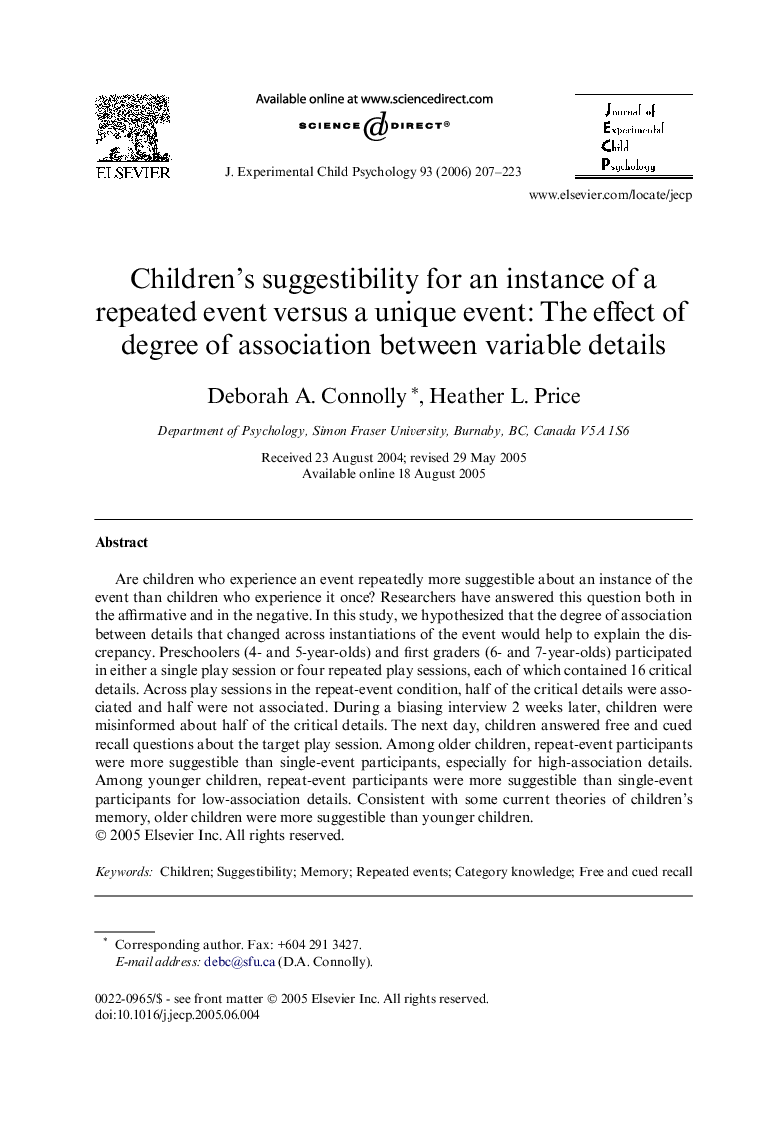| Article ID | Journal | Published Year | Pages | File Type |
|---|---|---|---|---|
| 918879 | Journal of Experimental Child Psychology | 2006 | 17 Pages |
Are children who experience an event repeatedly more suggestible about an instance of the event than children who experience it once? Researchers have answered this question both in the affirmative and in the negative. In this study, we hypothesized that the degree of association between details that changed across instantiations of the event would help to explain the discrepancy. Preschoolers (4- and 5-year-olds) and first graders (6- and 7-year-olds) participated in either a single play session or four repeated play sessions, each of which contained 16 critical details. Across play sessions in the repeat-event condition, half of the critical details were associated and half were not associated. During a biasing interview 2 weeks later, children were misinformed about half of the critical details. The next day, children answered free and cued recall questions about the target play session. Among older children, repeat-event participants were more suggestible than single-event participants, especially for high-association details. Among younger children, repeat-event participants were more suggestible than single-event participants for low-association details. Consistent with some current theories of children’s memory, older children were more suggestible than younger children.
